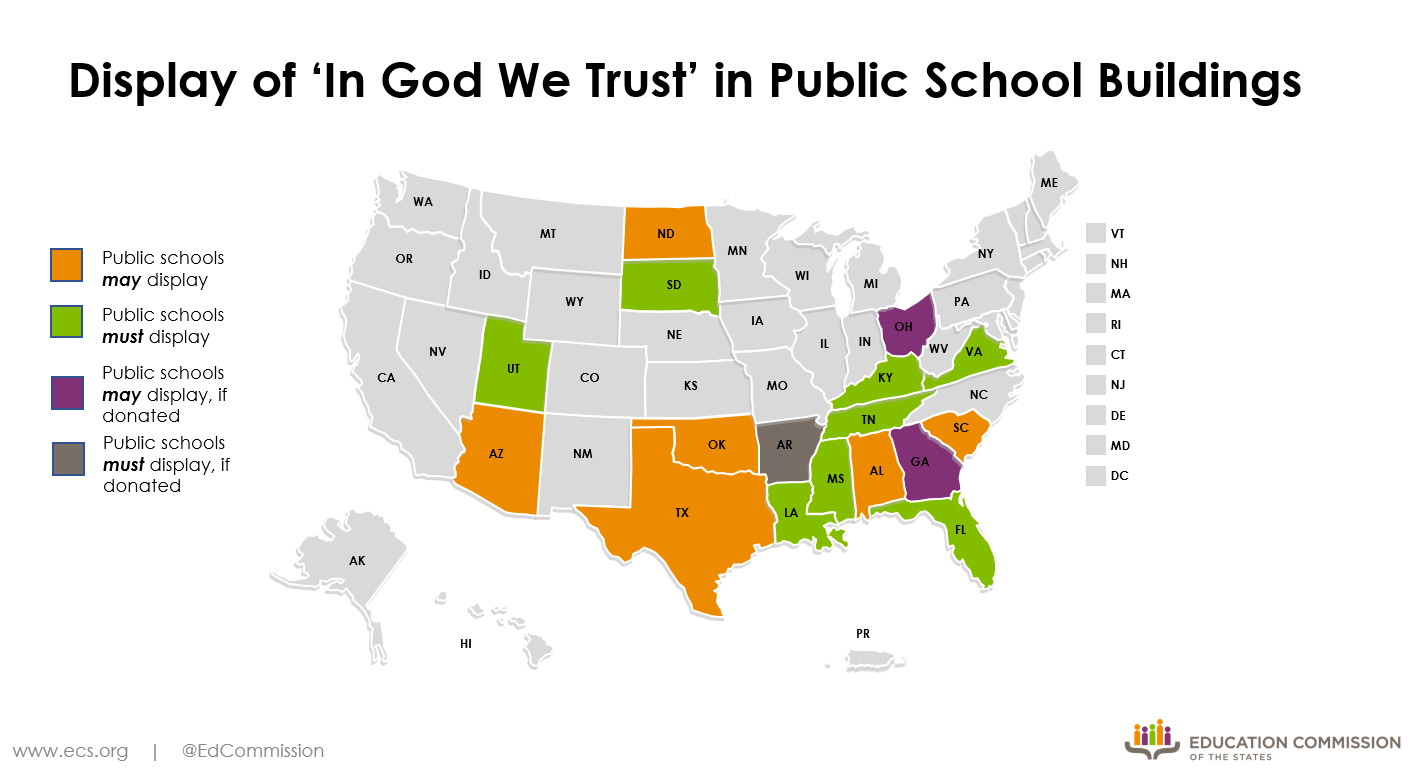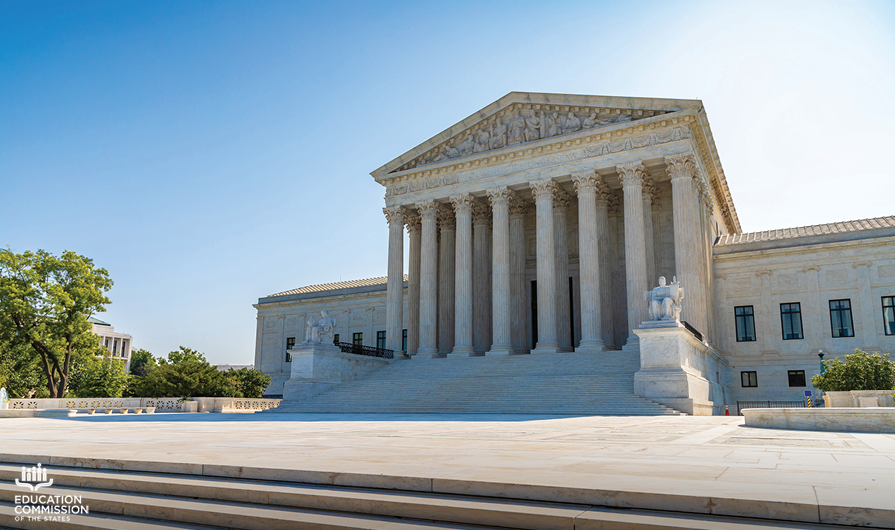When students returned to school this fall, some may have noticed new “In God We Trust” displays in their public school buildings. These displays correspond with recent laws in at least five states, including Kentucky, Louisiana and South Dakota, which make the displays a requirement beginning in the 2019-20 school year.
Florida and Tennessee passed similar laws in 2018, and such requirements were already in place in Mississippi, Utah and Virginia. At least six additional states (Alabama, Arizona, North Dakota, Oklahoma, South Carolina and Texas) have passed legislation that says “In God We Trust” may be posted in public schools. Georgia and Ohio allow such displays only if they are donated; and Arkansas mandates that if such a display is donated, it must be posted in a public school. The map below shows these enacted policies across the states.
Specific “In God We Trust” display requirements vary somewhat; for instance, Mississippi requires displays to be framed, at least 11-by-14 inches and posted in each classroom, auditorium and cafeteria in public schools. Kentucky does not require a specific size, as long as it is displayed in an entryway, cafeteria or common area. This flexibility led to one superintendent’s controversial use of the back of an enlarged one dollar bill, which bears the phrase, in order to fulfill the requirement.
These legislative initiatives over the past several years correspond with a recent advocacy push in state legislatures known colloquially as Project Blitz. This effort is led by such organizations as the Congressional Prayer Caucus Foundation (CPCF) and the National Legal Foundation. Project Blitz also champions Bible literacy courses in public schools and other issues in state legislatures in a stated effort to “recognize the place of Christian principles in our nation’s history and heritage.” The Project Blitz policy agenda had been laid out in a 2018-19 legislative report.
Opponents, such as Americans United for the Separation of Church and State and Baptist Joint Committee for Religious Liberty, argue that Project Blitz acts as a “new and coordinated national effort to enshrine Christian nationalism in state laws across the country.” They claim that less controversial changes, such as introducing displays in public schools, will lay the groundwork for future legislation that imposes religion in the public sphere.
The phrase “In God We Trust” has an interesting and contested history, and its installation as the national motto came in the midst of the Cold War. Although the United States has a long history of religion influencing governmental figures and institutions, it wasn’t until the 1950s that explicit references to God were nationally institutionalized. In 1955, federal law required that the phrase “In God We Trust” be printed on all American currency; it had previously been printed on some, but not all, coin currency. A year later it became the first official motto of the United States. Rep. Charles E. Bennett, who introduced the bill in the House, alluded to the Cold War conflict as an inspiration for the bill, stating that “in these days when imperialistic and materialistic communism seeks to attack and destroy freedom, we should continually look for ways to strengthen the foundations of our freedom.” Similarly, in 1954, the phrase “under God” was added to the Pledge of Allegiance.
It likely will not come as a surprise that a mandated reference to a religious figure in public schools is a controversial topic. Recent legislative efforts certainly make this a newsworthy trend. As has happened throughout the history of the United States, legislative bodies and the courts will continue to debate the proper relationship between church and state, often with important ramifications for education policy.











